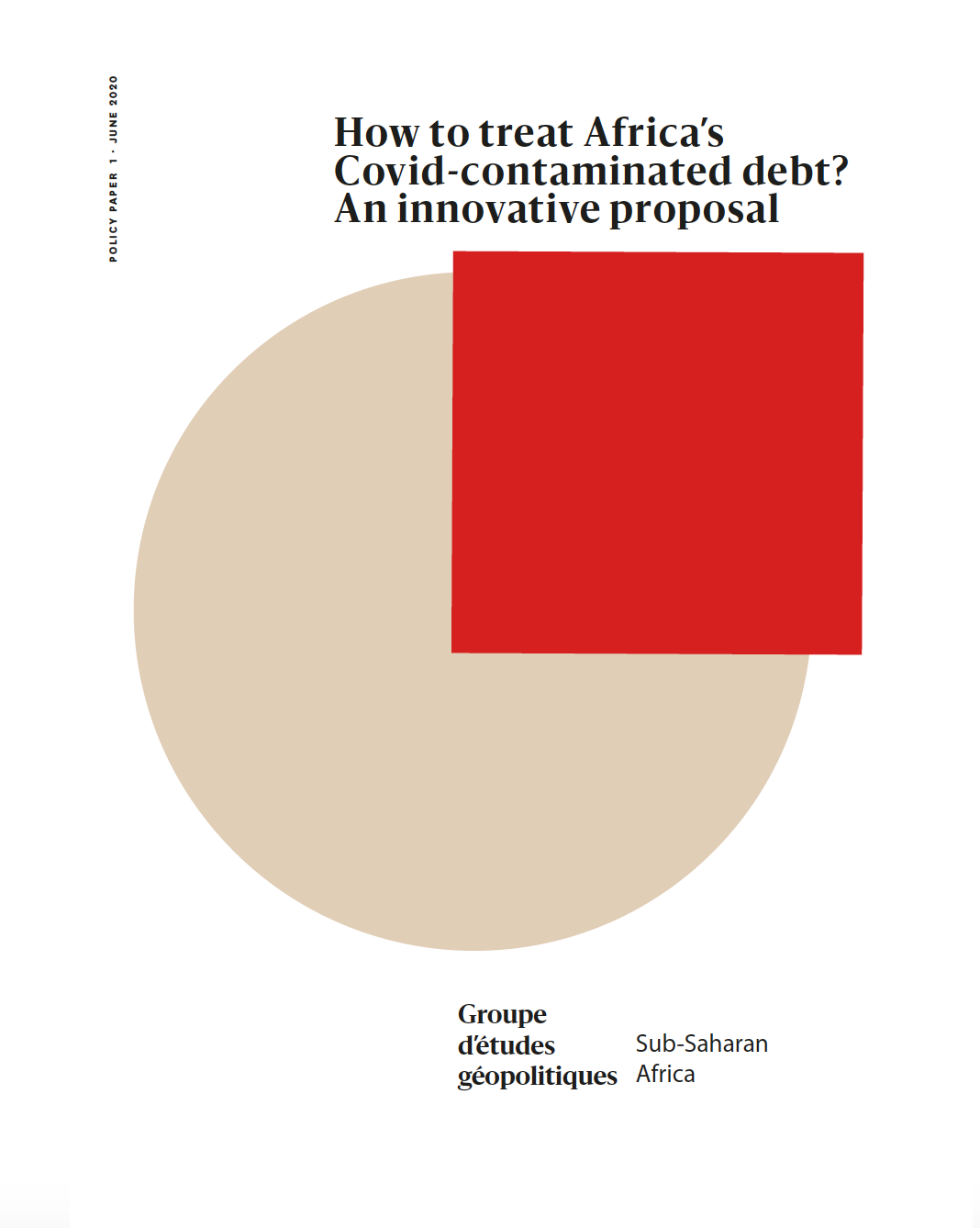Heterogeneous data, knowledge and profiles that rarely meet must be brought together to give shape, during the crisis, to the world that will come after. The Groupe d’études géopolitiques publishes today, within the framework of the Covid-19 Geopolitical Observatory, its first working paper which provide a synthetic overview of the challenges akin to African debt restructuring, signed by Alexandre Pointier and Olivier Vallée with a foreword by Mario Pezzini, Director of the OECD Development Center.
Version française par ici
How to approach Africa’s Covid-contaminated debt ? An innovative proposal
The Covid-19 pandemic reveals and accentuates structural economic imbalances, including high indebtedness, for most African countries. The latter has been transformed over the last decade by a combination of market instruments and debts which, in principle, cannot be rescheduled with regards to multilateral financing institutions. Alleviating the debt burden for low-income African economies which nonetheless bear specific debts, is therefore a puzzle that leads to the examination of diverse and probably complementary solutions.
- The debt service moratorium for 77 countries, announced on 15 April 2020 by the G20 finance ministers, at least partially responds to the liquidity problems encountered by poorest countries in the context of the Covid crisis but leaves aside the solvency issues ;
- The solvency objective can be achieved through a combination of three initiatives, but which must be adapted to the specific context of each country : a restructuring and securitisation operation for external commercial debt leading to standardised relief, a large-scale refinancing operation for domestic debt and, finally, relief for bilateral public debt ;
- In order to ensure the coherence of such operations, they should be framed by a single supervisory and coordination mechanism.
The objective of this policy paper is to provide a synthetic overview of the challenges akin to African debt restructuring. The three outlined mechanisms, as well as the supervision and coordination system, could be the subject of more detailed analyses.



